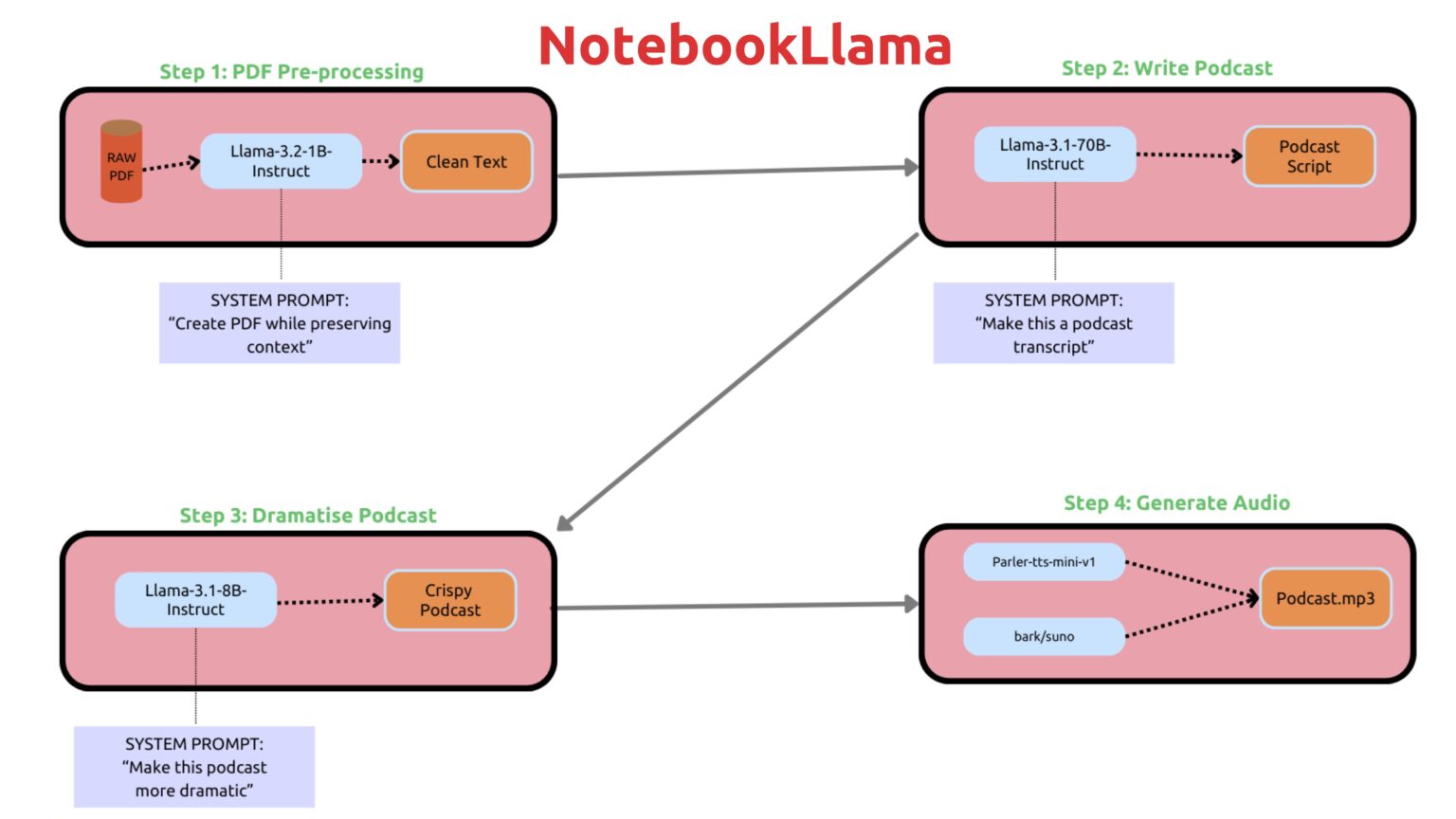San Francisco, NFAPost: Meta has released an “open” implementation of the viral generate-a-podcast feature in Google’s NotebookLM.
Called NotebookLlama, the project uses Meta’s own Llama models for much of the processing, unsurprisingly. Like NotebookLM, it can generate back-and-forth, podcast-style digests of text files uploaded to it.
NotebookLlama first creates a transcript from a file — e.g. a PDF of a news article or blog post. Then, it adds “more dramatization” and interruptions before feeding the transcript to open text-to-speech models.
The results don’t sound nearly as good as NotebookLM. In the NotebookLlama samples I have listened to, the voices have a very obviously robotic quality to them, and tend to talk over each other at odd points.
But the Meta researchers behind the project say that the quality could be improved with stronger models.
“The text-to-speech model is the limitation of how natural this will sound,” they wrote on NotebookLlama’s GitHub page. “[Also,] another approach of writing the podcast would be having two agents debate the topic of interest and write the podcast outline. Right now we use a single model to write the podcast outline.”
NotebookLlama isn’t the first attempt to replicate NotebookLM’s podcast feature. Some projects have had more success than others. But none — not even NotebookLM itself — have managed to solve the hallucination problem that dogs all AI. That is to say, AI-generated podcasts are bound to contain some made-up stuff.
Google updated the audio summarization feature of its AI note-taking and research assistant NotebookLM, which recently gained significant attention for its podcast-like audio conversations based on the content users share, with the ability to guide those conversations and focus on specific topics instead of just generating holistic audio summaries.
Today, audio Overviews in NotebookLM allow users to digest and comprehend the information in lengthy documents or videos through AI-generated audio conversations. Shortly after its launch last month, the feature helped NotebookLM grab eyeballs, as many began sharing audio summaries of their content on social media, including those created using their diaries or journals.
While Google hasn’t disclosed the traction NotebookLM has received as a result, data from the website traffic analytics platform SimilarWeb suggests NotebookLM saw an over 371% increase in its traffic in September to 3.07 million monthly visits, up from 652,181 a month ago.
Until now, Audio Overviews would automatically generate AI conversations from users’ sources. But since conversations sometimes revolve around content that isn’t important, Google is introducing an update that allows you to customize the overviews based on your needs. This lets users make the audio more focused on a particular topic within their content.
A dedicated “Customize” control is available before the existing “Generate” button to let you provide instructions for the AI hosts in the audio to focus on a specific point.





